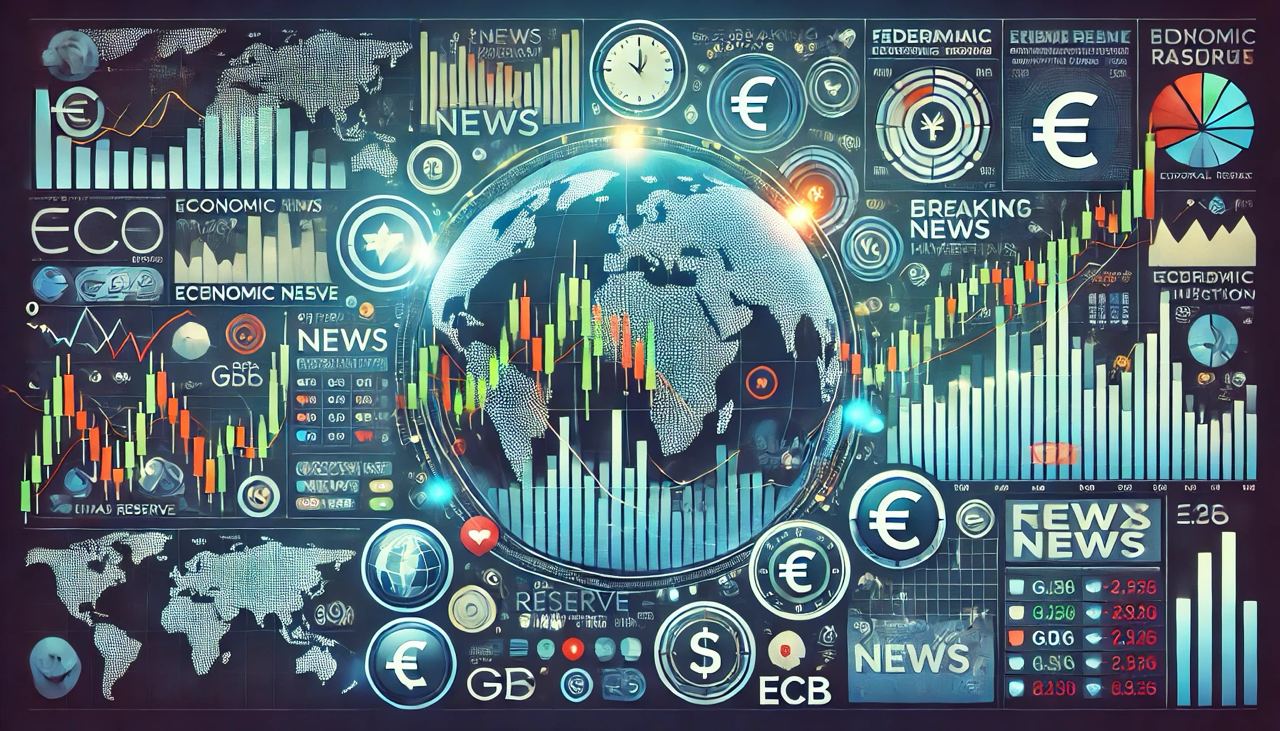Обучение трейдингу бесплатно и без регистрации
Онлайн-словарь чтобы изучать трейдинг самостоятельно
What News to Trade On?
Which News Should You Trade on the Forex Market?

Trading on news is one of the most dynamic and potentially profitable strategies on the Forex market. News serves as the primary driver of price movements, and during the release of key economic data or political events, the market experiences heightened volatility.
However, not every piece of news triggers sharp price movements. To trade successfully, it is essential to understand which events matter most, how they influence the market, and how to use them effectively in your strategy.
Why Are News Events Crucial?
Forex is a global market where trillions of dollars are traded daily. Price movements here are directly influenced by supply and demand, which are shaped by the sentiments of market participants.
These sentiments are driven by information from various sources:
- Economic reports.
- Central bank decisions.
- Political and geopolitical events.
- Commodity price changes.
News is the catalyst that triggers price movements. Ignoring fundamental data can lead to a lack of understanding of the reasons behind market trends and, consequently, to poor trading decisions.
Types of News to Trade On
1. Central Bank Decisions
Central banks play a critical role in managing the monetary policies of their respective countries. Their actions and statements are among the most significant events for the currency market.
-
Interest Rate Decisions:
Changes in interest rates have a direct impact on currency value.- A rate hike typically strengthens the currency as it attracts investors.
- A rate cut generally weakens the currency.
-
Central Bank Statements:
Traders closely analyze the tone of central bank statements.- "Hawkish" comments (indicating tightening policies) boost the currency.
- "Dovish" comments (suggesting easing policies) weaken it.
Key central banks to monitor include:
- The Federal Reserve (Fed).
- The European Central Bank (ECB).
- The Bank of England (BoE).
- The Bank of Japan (BoJ).
2. Economic Reports
Economic data is a primary source of information about the health of a country’s economy. The following reports have the most significant impact on the market:
-
Non-Farm Payrolls (NFP):
The U.S. jobs report is released on the first Friday of every month.- Strong NFP data signals a robust economy and boosts the dollar.
- Weak NFP data has the opposite effect.
-
Inflation (CPI):
The Consumer Price Index measures inflation levels.- High inflation may prompt central banks to raise rates, strengthening the currency.
- Low inflation often leads to lower rates and a weaker currency.
-
Gross Domestic Product (GDP):
Reflects economic growth or contraction.- Positive GDP data supports the national currency.
- Negative GDP data weakens it.
-
Purchasing Managers' Index (PMI):
Indicates activity in the manufacturing and services sectors.
3. Geopolitical Events
Political news and international conflicts often cause strong currency movements.
- Elections:
- Presidential elections in the U.S. or referendums like Brexit can significantly increase volatility.
- Conflicts and Sanctions:
Any event threatening global stability increases demand for safe-haven assets like gold, the Japanese yen, or the Swiss franc.
4. Commodity News
Prices of oil, gas, gold, and other commodities directly affect the economies of countries dependent on their exports.
- Rising oil prices support the currencies of countries like Canada, Russia, and Norway.
- Falling commodity prices can weaken their national currencies.
How to Trade News Effectively?
-
Use Economic Calendars:
Economic calendars are your best tool for planning trades based on news. They provide the schedule for key events and expected data releases. -
Prepare Scenarios:
Before news releases, define possible scenarios:- What will you do if the data exceeds expectations?
- How will you react if it falls short?
-
Manage Risks:
News trading comes with high volatility, so:- Set appropriate stop-loss levels.
- Avoid using excessive leverage.
-
Study Historical Reactions:
Analyze how the market reacted to similar news in the past. This will help you better understand what to expect.
Why Is It Important to Consider News?
Without news, the market remains static. Fundamental events give it momentum. Whether or not you rely on technical analysis, it’s the news that determines the market’s direction.
Conclusion
News trading offers traders unique opportunities for profit. However, success requires not only quick reactions but also an understanding of which events matter.
Central bank decisions, economic reports, and geopolitical events are the three pillars that drive currency movements. If you learn to interpret news correctly and incorporate it into your strategy, you can leverage the power of fundamental analysis to achieve success on the Forex market.


